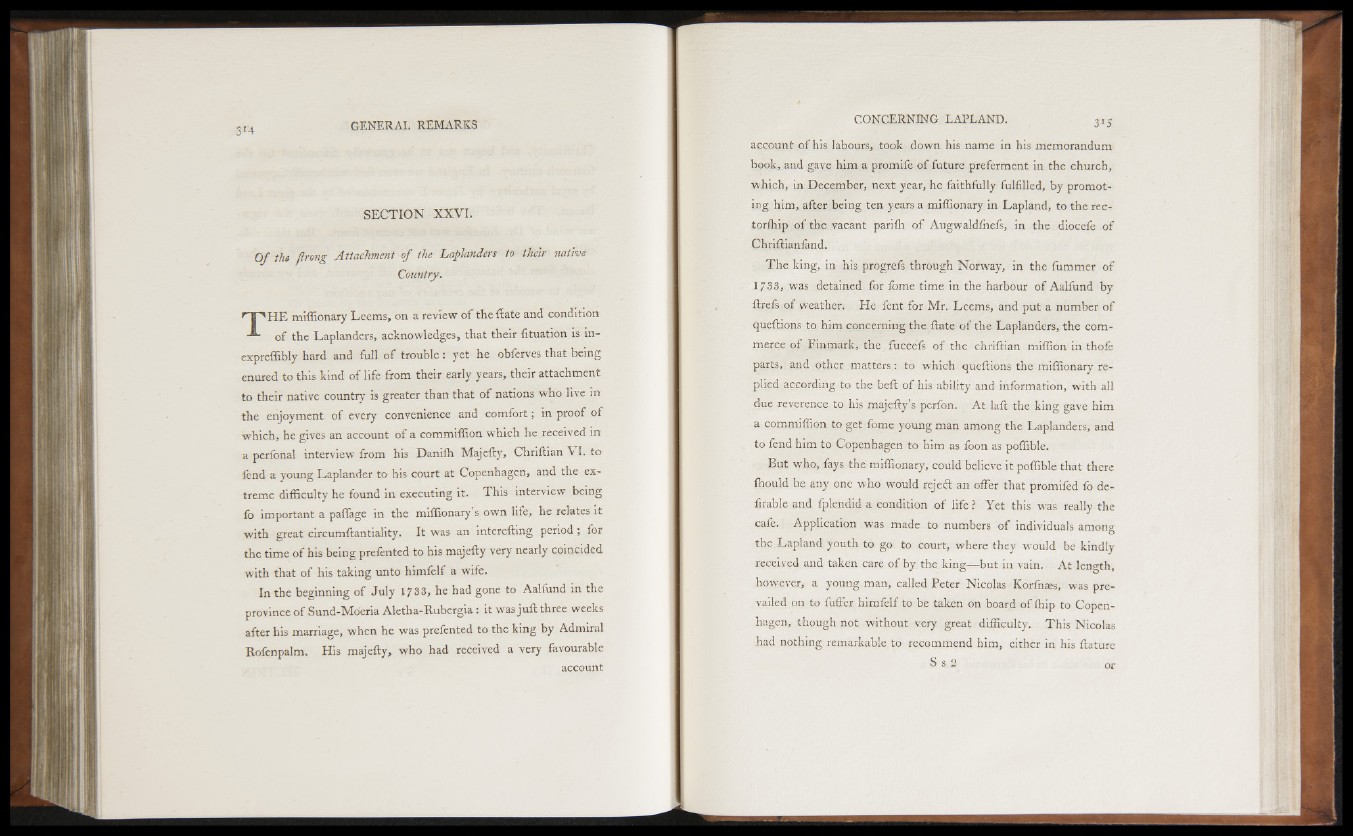
SECTION XXVI.
O f the frang Attachment o f the Laplanders to their native
Country.
TH E miffionary Leems, on a review o f the ftate and condition
of the Laplanders, acknowledges, that their fituation is in-
expreffibly hard and full o f trouble : yet he obferves that being
enured to this kind of life from their early years, their attachment
to their native country is greater than that o f nations who live in
the enjoyment of every convenience and comfort; in proof of
which, he gives an account o f a commiffion which he received in
a perlonal interview from his Daniih Majefty, Chriftian \ I. to
fend a young Laplander to his court at Copenhagen, and the extreme
difficulty he found in executing it. This interview being
fo important a paflfage in the miffionary s own life, he relates it
with great circumftantiality. It was an intereffing period ; for
the time of his being prefented to his majefty very nearly coincided
with that of his taking unto himfelf a wife.
In the beginning of July 1733, he had gone to Aalfund in the
province of Sund-Mo'eria Aletha-Rubergia : it was ju it three weeks
after his marriage, when he was prefented to the king by Admiral
Rofenpalm. His majefty, who had received a very favourable
account
account of his labours, took down his name in his memorandum
hook, and gave him a promife of future preferment in the church,
which, in December, next year, he faithfully fulfilled, by promoting
him, after being ten years a miffionary in Lapland, to the rec-
torfhip of the vacant pari ill of Augwaldfnefs, in the dioceie of
Chriftianfand.
T he king, in his progrefs through Norway, in the fummer of
1733, was detained for fome time in the harbour o f Aalfund by
ftrefs of weather. He fent for Mr. Leems, and put a number of
queftions to him concerning the ftate of the Laplanders, the commerce
of Finmark, the fuccefs of the chriftian million in thofe
parts, and other matters: to which queftions the miffionary replied
according to the beft of his ability and information, with all
due reverence to his majefty’s perfon. At laft the king gave him
a commiffion to get fome young man among the Laplanders, and
to fend him to Copenhagen to him as foon as poffible.
But who, fays the miffionary, could believe it poffible that there
fhould be any one who would rejccft an offer that promifed fo de-
firable and fplendid a condition of life ? Yet this was really the
cafe. Application was made to numbers of individuals among
the Lapland youth to go to court, where they would be kindly
received and taken care of by the king—but in vain. At length,
however, a young man, called Peter Nicolas Korfnres, was prevailed
on to fuffer himfelf to be taken on board of fhip to Copenhagen,
though not without very great difficulty. This Nicolas
had nothing remarkable to recommend him, either in his ftature
S s 2 or